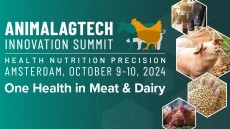Cargill’s Triple S among six schemes benchmarked against revised FEFAC SSGs

Those soy sustainability certification schemes deemed to have met the necessary criteria include Cargill Triple S, Cefetra CRS, Danube/Europe Soy, ProTerra, RTRS, and the Sustainable Farming Assurance Program.
Other certification programs are currently going through the application process, said the EU feed trade group, and it is expected those schemes will be added to the ITC facilitated Soy Benchmarking Tool in the coming period.
FEFAC’s upgraded SSGs, launched in February this year, now include 73 criteria, as opposed to 59 in the 2015 guidelines, of which 54 are essential and, also included in the new version, are 19 desired criteria. Each scheme must meet at least 8 out of 19 desired [optional] criteria to pass the benchmarking exercise.
Some of the new desired criteria in the SSGs reflect current debate in the areas of soil health, integrated pest management, carbon sequestration, as well as protection of forests and natural ecosystems.
The ITC said its standards map database and benchmarking tool allow users to conduct a detailed review and comparison of sustainability schemes’ criteria; they can determine which responsible soy programs comply with the new desired criterion on conversion-free soy, that is soy grown on land that didn’t come at the expense of any - illegal or legal - conversion of natural eco-systems, including natural forests, as from a certain cut-off date.
FEFAC senior policy and communication manager, Anton van den Brink, told us in February the hope is that with the greater transparency seen in the SSGs 2021, the EU feed industry body can contribute to the establishment of a mainstream market for responsible soy.


















